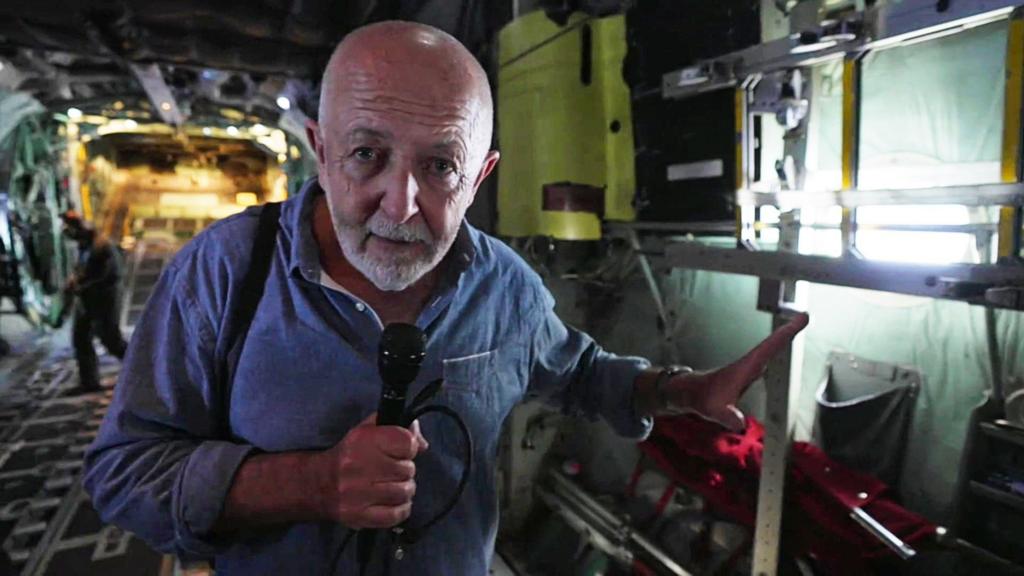The BBC’s International Editor, Jeremy Bowen, accompanied a Jordanian military mission delivering humanitarian aid to Gaza.
According to Jordanian officials, Israel requested that the BBC crew refrain from filming outside the aircraft windows during the aid drop.
Despite the restriction, Bowen reported witnessing the apparent devastation of previously familiar and vibrant communities in northern Gaza from his vantage point.
Israel, which maintains control over the entry of supplies into Gaza, has refuted claims of starvation in the region and rejected accusations of responsibility for food shortages.
The Israel Defense Forces (IDF) have issued evacuation orders to Palestinian residents in areas of northern Gaza, directing them to move south, citing ongoing military operations “to eliminate terrorists and terrorist infrastructure.”
Humanitarian organizations have consistently asserted that airdrops are insufficient to meet Gaza’s needs, advocating for the increased passage of aid trucks.
Mark Rutte seemingly approves of the US President’s forceful remarks regarding the involved nations made on Tuesday.
Lyse Doucet reports from Tehran, indicating a gradual return to normalcy in the city.
The US President has voiced his disapproval of the actions of both countries.
Israeli authorities report that at least four individuals have perished following an Iranian missile strike on a residential building.
Emerging footage depicts plumes of smoke rising over Tehran and the city of Karaj, situated west of the capital.
An Israeli minister has informed the BBC that the Prime Minister and the US President have been in close collaboration “from day one.”
The missile appears to have impacted near a power station in the city of Ashdod.
“Operation Midnight Hammer,” the US mission, involved months of planning, more than 125 aircraft, a submarine, and 14 “bunker buster” bombs, as detailed by BBC Verify.
Joe Inwood, the BBC’s world news correspondent, addresses three critical questions in the aftermath of the US strikes in Iran.
Emergency responders are working to clear debris from the site of an Iranian missile attack in Tel Aviv.
Lucy Williamson of the BBC reports live from outside Soroka Hospital in Beersheba, southern Israel, as emergency personnel assess the situation.
The Prime Minister of Israel has consistently cautioned that Iran is nearing the development of nuclear weaponry; BBC Verify’s Ros Atkins clarifies the current understanding of Iran’s program.
Iran’s Fordo nuclear facility is among the most fortified globally, and only the US possesses a weapon capable of destroying it.
Social media videos display long queues at fuel stations and traffic congestion as residents attempt to leave Tehran.
Hugo Bachega, the BBC’s Middle East correspondent, is reporting from Petah Tikva, where an Iranian missile struck a building overnight.
Israel’s national emergency service reports five fatalities and dozens of injuries.
Footage sourced from Reuters and The Associated Press shows vehicles ablaze following a missile strike in the Israeli city of Haifa.
BBC correspondent Hugo Bachega reports from Bat Yam, near Tel Aviv, a target of Iranian strikes.
Israel and Iran have continued exchanging attacks throughout the night.
Emergency services in Bat Yam, Israel, are conducting rescue operations in response to the Iranian strike.

